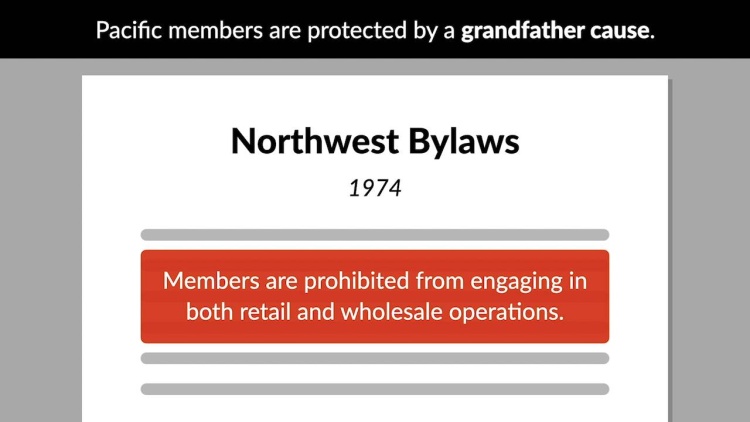Northwest Wholesale Stationers, Inc. v. Pacific Stationery & Printing Co.
United States Supreme Court
472 U.S. 284 (1985)
- Written by Nicholas Decoster, JD
Facts
Northwest Wholesale Stationers, Inc. (Northwest) (defendant), was a cooperative wholesaler composed of around 100 office-supply retailers. Member retailers received a percentage of Northwest’s annual profits based on the retailers’ wholesale purchases throughout the year. The rebate allowed members to receive products at significantly lower prices compared to nonmembers. Pacific Stationery & Printing Company (Pacific) (plaintiff) became a member of Northwest in 1958. In 1977, Pacific’s controlling ownership changed hands without notification to Northwest, in violation of membership rules. In 1978, Northwest expelled Pacific from the cooperative. In response, Pacific brought a lawsuit against Northwest, claiming that the cooperative expulsion was a group boycott in violation of the Sherman Act. Pacific had received no hearing or opportunity to appeal the expulsion. The district court granted summary judgment for Northwest after applying a rule-of-reason analysis. The court of appeals overturned the decision, finding Northwest’s actions to be a per se violation of the Sherman Act. Northwest petitioned the United States Supreme Court for certiorari, which was granted.
Rule of Law
Issue
Holding and Reasoning (Brennan, J.)
What to do next…
Here's why 910,000 law students have relied on our case briefs:
- Written by law professors and practitioners, not other law students. 47,100 briefs, keyed to 997 casebooks. Top-notch customer support.
- The right amount of information, includes the facts, issues, rule of law, holding and reasoning, and any concurrences and dissents.
- Access in your classes, works on your mobile and tablet. Massive library of related video lessons and high quality multiple-choice questions.
- Easy to use, uniform format for every case brief. Written in plain English, not in legalese. Our briefs summarize and simplify; they don’t just repeat the court’s language.





